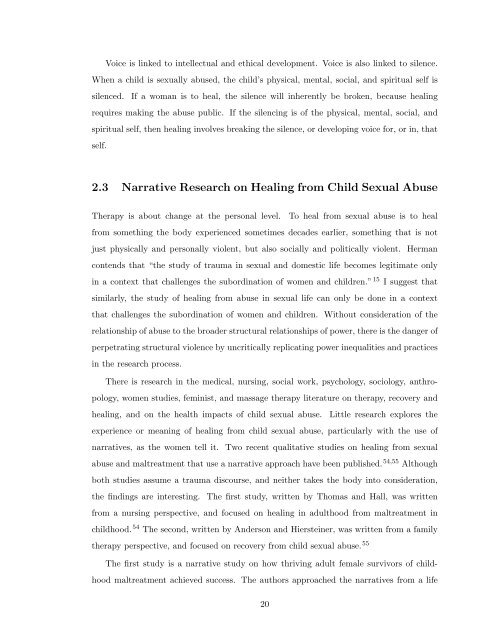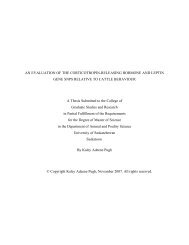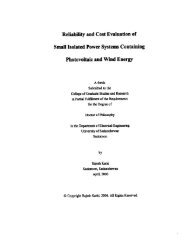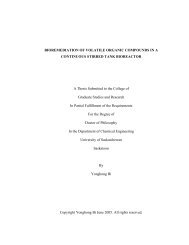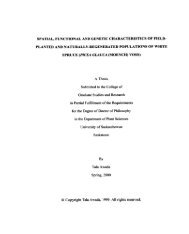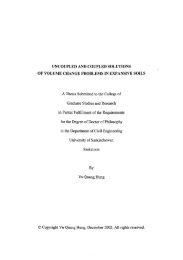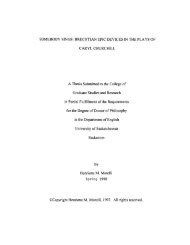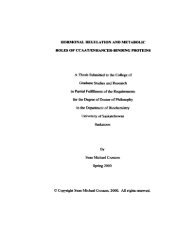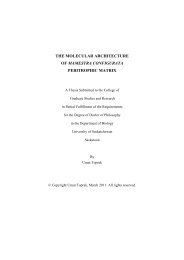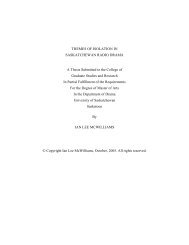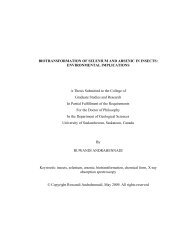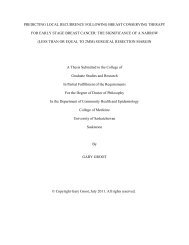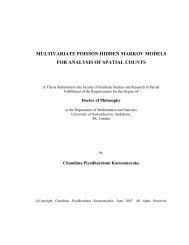Women's Narratives of Healing from the Effects of Child Sexual Abuse
Women's Narratives of Healing from the Effects of Child Sexual Abuse
Women's Narratives of Healing from the Effects of Child Sexual Abuse
You also want an ePaper? Increase the reach of your titles
YUMPU automatically turns print PDFs into web optimized ePapers that Google loves.
Voice is linked to intellectual and ethical development. Voice is also linked to silence.<br />
When a child is sexually abused, <strong>the</strong> child’s physical, mental, social, and spiritual self is<br />
silenced. If a woman is to heal, <strong>the</strong> silence will inherently be broken, because healing<br />
requires making <strong>the</strong> abuse public. If <strong>the</strong> silencing is <strong>of</strong> <strong>the</strong> physical, mental, social, and<br />
spiritual self, <strong>the</strong>n healing involves breaking <strong>the</strong> silence, or developing voice for, or in, that<br />
self.<br />
2.3 Narrative Research on <strong>Healing</strong> <strong>from</strong> <strong>Child</strong> <strong>Sexual</strong> <strong>Abuse</strong><br />
Therapy is about change at <strong>the</strong> personal level. To heal <strong>from</strong> sexual abuse is to heal<br />
<strong>from</strong> something <strong>the</strong> body experienced sometimes decades earlier, something that is not<br />
just physically and personally violent, but also socially and politically violent. Herman<br />
contends that “<strong>the</strong> study <strong>of</strong> trauma in sexual and domestic life becomes legitimate only<br />
in a context that challenges <strong>the</strong> subordination <strong>of</strong> women and children.” 15 I suggest that<br />
similarly, <strong>the</strong> study <strong>of</strong> healing <strong>from</strong> abuse in sexual life can only be done in a context<br />
that challenges <strong>the</strong> subordination <strong>of</strong> women and children. Without consideration <strong>of</strong> <strong>the</strong><br />
relationship <strong>of</strong> abuse to <strong>the</strong> broader structural relationships <strong>of</strong> power, <strong>the</strong>re is <strong>the</strong> danger <strong>of</strong><br />
perpetrating structural violence by uncritically replicating power inequalities and practices<br />
in <strong>the</strong> research process.<br />
There is research in <strong>the</strong> medical, nursing, social work, psychology, sociology, anthropology,<br />
women studies, feminist, and massage <strong>the</strong>rapy literature on <strong>the</strong>rapy, recovery and<br />
healing, and on <strong>the</strong> health impacts <strong>of</strong> child sexual abuse. Little research explores <strong>the</strong><br />
experience or meaning <strong>of</strong> healing <strong>from</strong> child sexual abuse, particularly with <strong>the</strong> use <strong>of</strong><br />
narratives, as <strong>the</strong> women tell it. Two recent qualitative studies on healing <strong>from</strong> sexual<br />
abuse and maltreatment that use a narrative approach have been published. 54,55 Although<br />
both studies assume a trauma discourse, and nei<strong>the</strong>r takes <strong>the</strong> body into consideration,<br />
<strong>the</strong> findings are interesting. The first study, written by Thomas and Hall, was written<br />
<strong>from</strong> a nursing perspective, and focused on healing in adulthood <strong>from</strong> maltreatment in<br />
childhood. 54 The second, written by Anderson and Hiersteiner, was written <strong>from</strong> a family<br />
<strong>the</strong>rapy perspective, and focused on recovery <strong>from</strong> child sexual abuse. 55<br />
The first study is a narrative study on how thriving adult female survivors <strong>of</strong> childhood<br />
maltreatment achieved success. The authors approached <strong>the</strong> narratives <strong>from</strong> a life<br />
20


